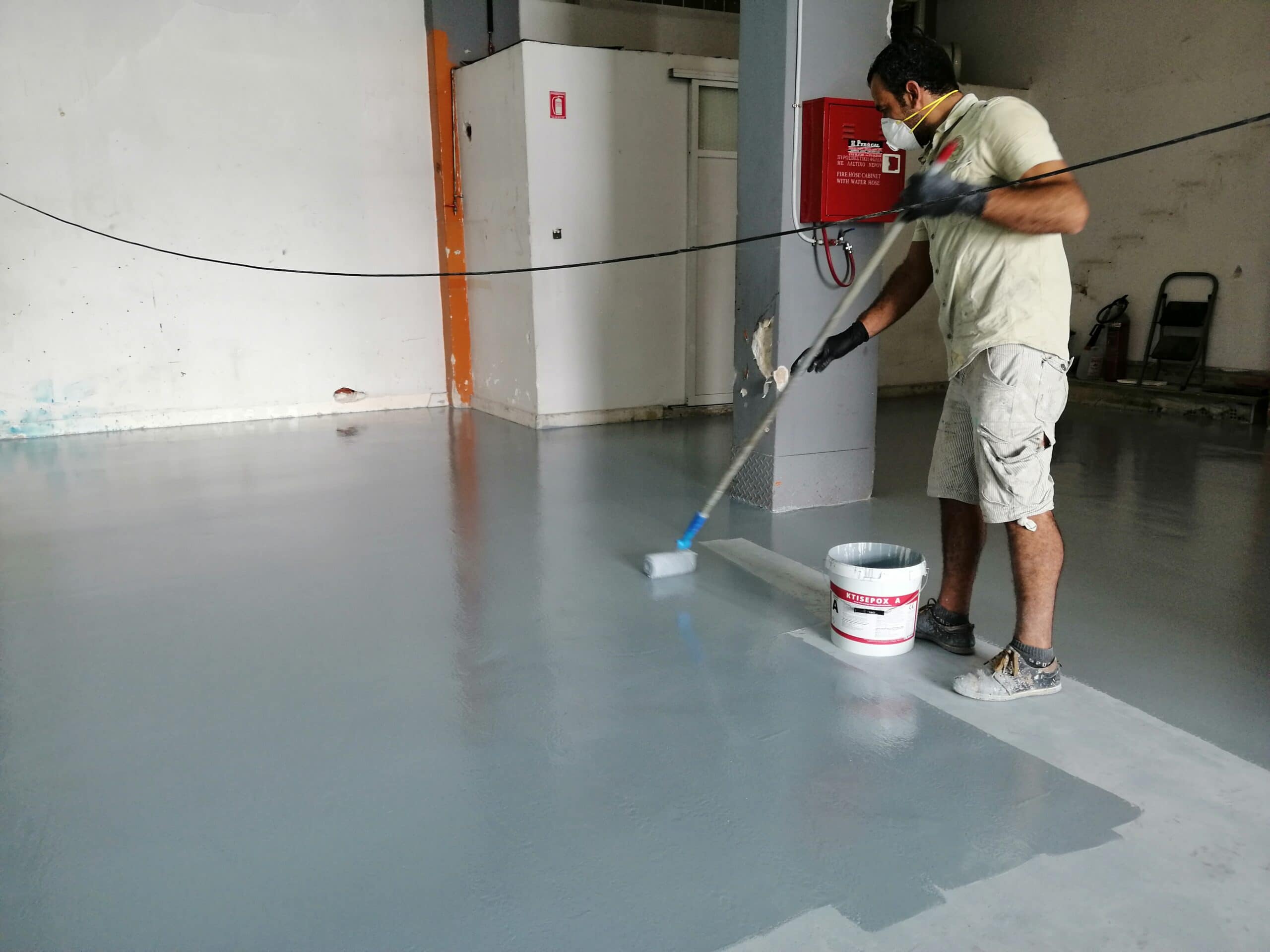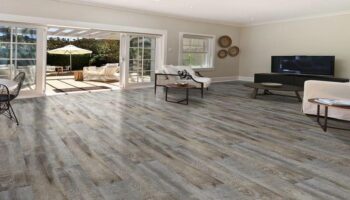Epoxy flooring is a two-part mixture of resin and hardener that creates a hard plastic covering that can be applied to any surface.
Over a variety of industrial and commercial flooring, including concrete, wood, VCT, and tile, epoxy flooring is popularly used. Epoxy flooring dries rapidly, allowing your organization to go back to work as soon as possible.
Types Of Epoxy Floor Coatings
In terms of epoxy flooring, there are a wide variety of options. Because of its many advantages, epoxy flooring is a great choice for a wide range of commercial settings including industrial, manufacturing, food processing, and healthcare.
The following are the various types of epoxy floor coatings, as well as the most prevalent applications for each.
Self-Dispersing
The use of self dispersing epoxy floor coatings is incredibly popular in the USA. It can be blended with quartz sand to increase the durability of the final product.
This type of epoxy flooring is typically found in high-traffic areas where forklifts and other heavy machines are frequently used. Self-dispersing epoxy flooring is frequently used in the food and agriculture, as well as in the manufacturing industries.
Self-Levelling
Self-leveling epoxy flooring is a fantastic alternative for both new and old concrete surfaces. It produces a highly smooth surface that effectively conceals cracks or imperfections.
It also provides a floor that is both durable and aesthetically appealing. Self-leveling epoxy floors are frequently seen in commercial buildings such as warehouses, manufacturing plants, office buildings and showrooms.
Mortar
Using mortar epoxy flooring, which is the strongest type of epoxy floorings available, can be used to repair breaks in existing floorings before placing another type of epoxy coatings on top, like an anti-slip coating, to make the floor more slip-resistant.
Heavy traffic areas, such as industrial industries, manufacturing plants, and warehouses benefit from the use of mortar epoxy flooring.
Gravelled
Gravelled epoxy flooring is a decorative and visually appealing option since they are made up of colorful flakes which gives the appearance of gravel. If you want to put your company’s name or logo on the floor, this may be the best alternative.
ESD (Electrostatic Dissipating)
In some commercial environments, the ability to work in a static-free environment is essential. Epoxy flooring with ESD properties is an epoxy coating that has been particularly developed to prevent the electrical charge buildup and release that is common in floors.
Laboratories, hospitals, chemical & electronic equipment manufacturing facilities are all examples of places where this type of flooring is common.
Vapor barrier
In situations where moisture control or 0% vapor transmission are required, an epoxy vapor barrier coating is the ideal solution. This form of flooring is applied directly to concrete and can help in the mitigation of moisture before any other sort of flooring, such as linoleum, tile, or carpet, is installed on the surface.
Quartz-filled
Quartz-filled epoxy floors are more durable because of their hard mineral’s inclusion. In addition to being used as the bonding agent, quartz can also be used as a decorative addition or even as a anti-slip surface. In schools, cafeterias, lobbies and showrooms, this kind of epoxy flooring is commonly used.
Benefits And Advantages Of Epoxy Flooring
Let’s take a closer look at epoxy flooring’s specific advantages and benefits. When compared to other types of flooring, such as vinyl, tile, or carpet, epoxy flooring has a number of advantages.
Aesthetics
With a wide variety of customisable coloring options and a variety of gloss levels, epoxy flooring could be applied as seamless, easy-to-clean floor surface in a variety of applications (glossy, satin, matte). Additional options include the use of colored microchips or metallic pigment additives in conjunction with the design.
Safety
While epoxy flooring has many advantages, one of the less well-known is its ability to incorporate the non-slip profile by disseminating sand onto a wet body coat during the installation process.
This is a vital consideration for industrial buildings or commercial since the safety of those who work or live there must always be a top priority.
Note that installing an epoxy floor may create a lot of construction debris. In this case, the best way to dispose of the junk is to rent a dumpster. Such a service is very convenient as all you need to do is fill the bin. The dumpster rental company will take care of sending everything to the nearest landfill.
Durability
The amount of foot traffic on epoxy floors might vary, as can the amount of truck and forklift movement. In the production environment, an industrial flooring solution must be durable enough to resist the everyday damage from a wide range of equipment and manufacturing processes.
Epoxy flooring alternatives, which are abrasion and chemical resistant, can meet the long-term durability requirements of the majority of industrial enterprises.
Environment Suitability
When it comes to floor options, epoxy is one of the most adaptable. It can be used in a wide range of environments, including industrial, commercial, medical and recreational, as well as food and beverage manufacturing.





